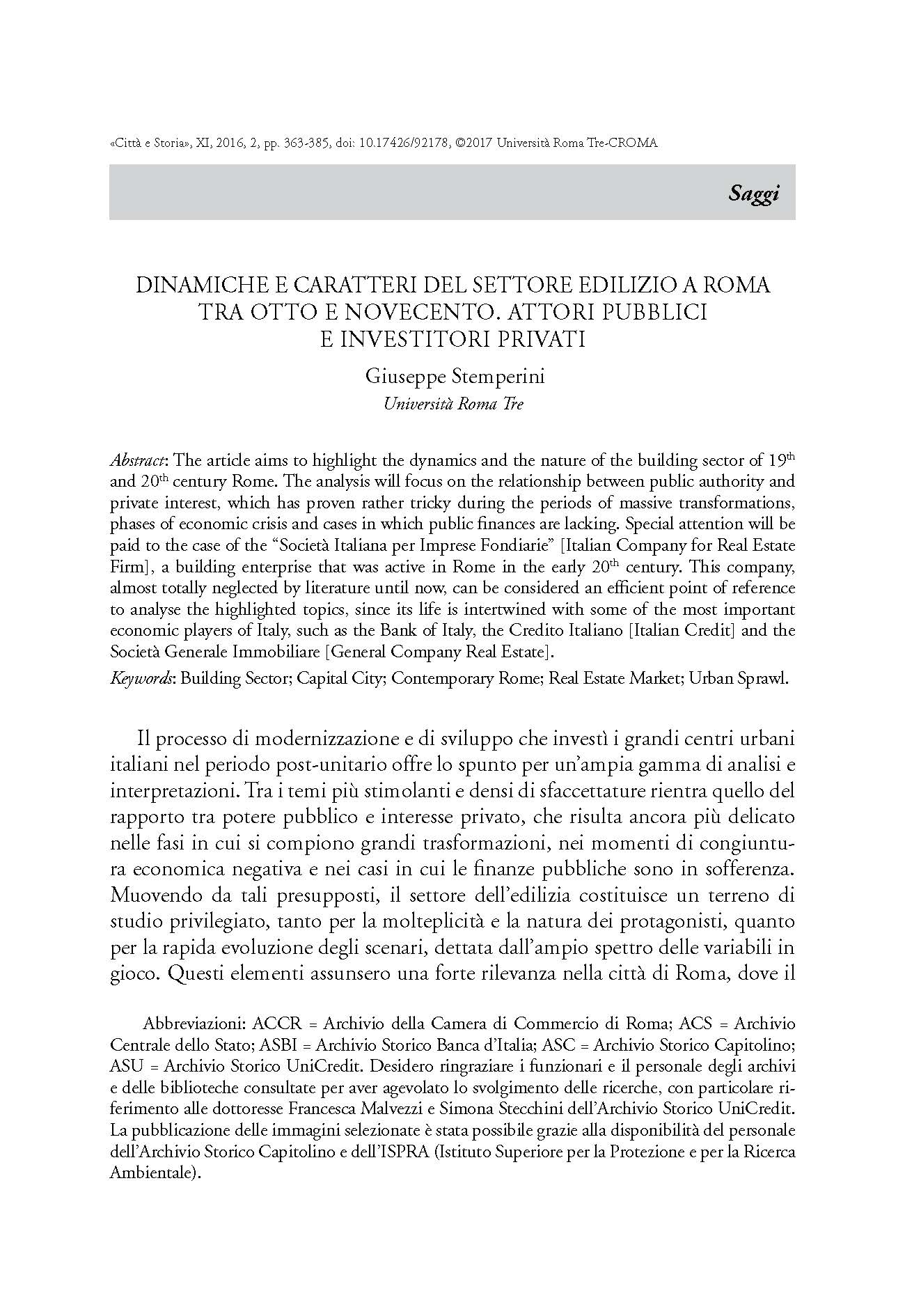Dinamiche e caratteri del settore edilizio a Roma tra Otto e Novecento. Attori pubblici e investitori privati
6,00 €
The article aims to highlight the dynamics and the nature of the building sector of 19th
and 20th century Rome. The analysis will focus on the relationship between public authority and
private interest, which has proven rather tricky during the periods of massive transformations,
phases of economic crisis and cases in which public finances are lacking. Special attention will be
paid to the case of the “Società Italiana per Imprese Fondiarie” [Italian Company for Real Estate
Firm], a building enterprise that was active in Rome in the early 20th century. This company,
almost totally neglected by literature until now, can be considered an efficient point of reference
to analyse the highlighted topics, since its life is intertwined with some of the most important
economic players of Italy, such as the Bank of Italy, the Credito Italiano [Italian Credit] and the
Società Generale Immobiliare [General Company Real Estate].
The article aims to highlight the dynamics and the nature of the building sector of 19th
and 20th century Rome. The analysis will focus on the relationship between public authority and
private interest, which has proven rather tricky during the periods of massive transformations,
phases of economic crisis and cases in which public finances are lacking. Special attention will be
paid to the case of the “Società Italiana per Imprese Fondiarie” [Italian Company for Real Estate
Firm], a building enterprise that was active in Rome in the early 20th century. This company,
almost totally neglected by literature until now, can be considered an efficient point of reference
to analyse the highlighted topics, since its life is intertwined with some of the most important
economic players of Italy, such as the Bank of Italy, the Credito Italiano [Italian Credit] and the
Società Generale Immobiliare [General Company Real Estate].

